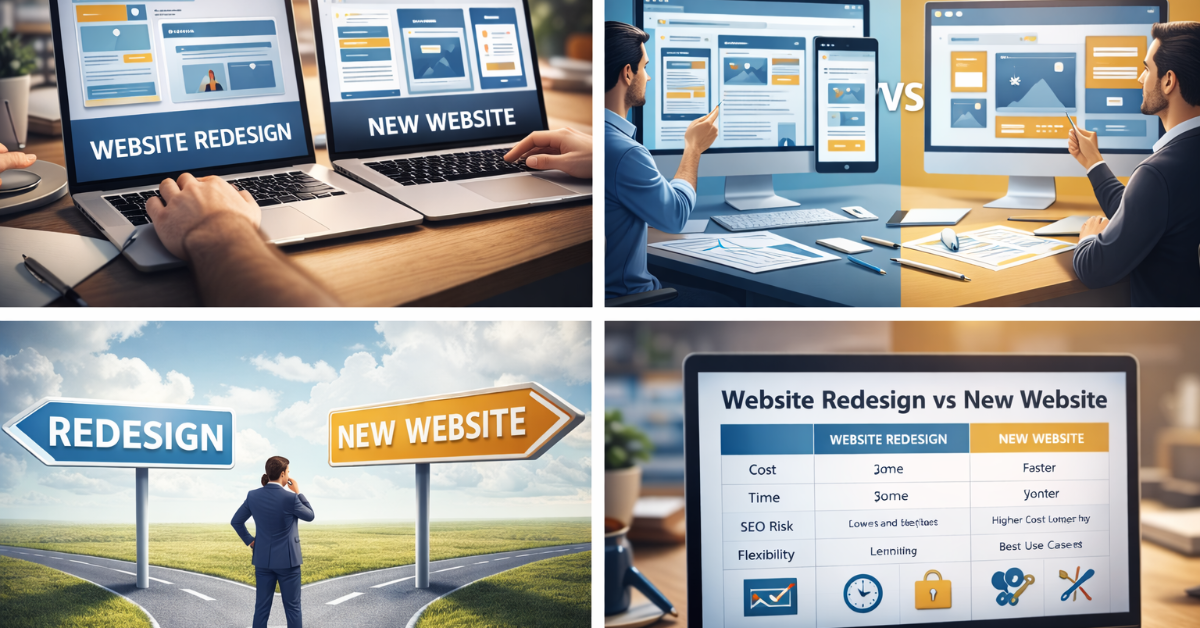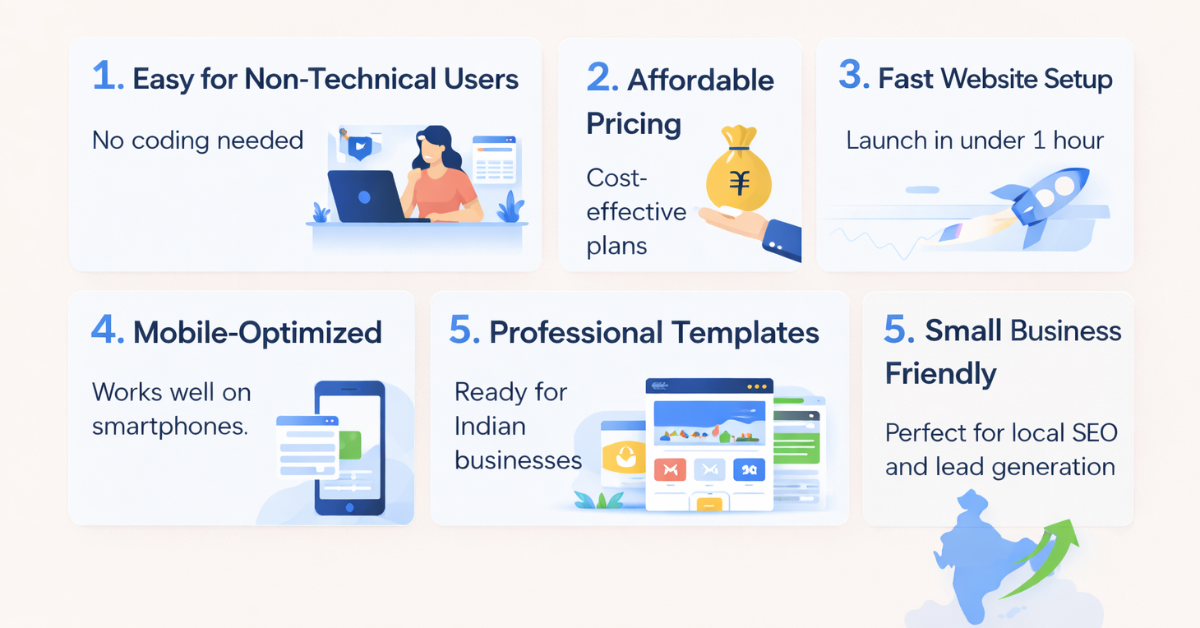
When it comes to building a website for your business, one of the most important decisions you'll make is choosing the right Content Management System (CMS). A CMS is the software that allows you to create, manage, and modify content on your website without needing technical expertise. It’s essentially the backbone of your website, so it’s crucial to choose the one that fits your needs best. With a plethora of options available, how do you know which CMS is right for your business?
In this post, we’ll guide you through the factors to consider when selecting a CMS and highlight some of the best options available.
Before diving into technical features and costs, it's essential to understand your business’s unique needs and goals. Every business website is different, and the CMS you choose should align with your business model.
Consider these key questions:
What type of content will you be publishing? If you plan to have a blog-heavy website or product catalogue, your CMS needs to support these features effectively.
Will your website require e-commerce functionality? If you’re running an online store, you’ll need a CMS with robust e-commerce features.
How many users will be managing the website? If multiple people need access to the CMS, look for one that supports user roles and permissions.
Do you need advanced customisation? If your site will need custom designs, third-party integrations, or specific functionality, consider a flexible CMS that can grow with your business.
Once you have a clear idea of your needs, you can narrow down the CMS options that will help you achieve those goals efficiently.
For most business owners, especially those without technical backgrounds, the ease of use of a CMS is a top priority. You’ll want a system that’s intuitive, simple to navigate, and easy to update.
Here are a few things to look for:
User-friendly interface: A good CMS will have a clear and well-organised dashboard. Drag-and-drop functionality and WYSIWYG (What You See Is What You Get) editors can make it easier to create and modify content.
Learning curve: Some CMS platforms, like WordPress, have extensive resources, tutorials, and communities that can help you get up to speed quickly. Others may require you to hire a developer to make even basic changes.
Scalability: While ease of use is important, you also want a CMS that can grow with your business. If you plan to expand your website with additional features over time, make sure your CMS can accommodate that.
Search engine optimisation (SEO) is critical for any business website. You want to choose a CMS that makes it easy to optimise your website for search engines, ensuring your content is discoverable and ranks well in Google.
Features to look for in a CMS with good SEO capabilities:
Customisable meta tags for titles, descriptions, and keywords.
Clean URL structure for better search engine crawling.
SEO-friendly themes and templates that are optimised for speed and mobile responsiveness.
SEO plugin or built-in features that allow you to add alt text for images, generate sitemaps, and perform other essential tasks.
Popular CMS platforms like WordPress offer powerful SEO tools (such as Yoast SEO) to make it easier to optimise your content, even if you have little SEO experience.
The design of your website is crucial in making a great first impression on visitors. You’ll want a CMS that gives you the flexibility to create a visually appealing site that aligns with your brand identity.
Things to consider for design flexibility:
Templates and Themes: Look for a CMS with a wide selection of themes or templates that fit your business's style. Most CMS platforms offer free or premium themes, but make sure they are mobile-responsive and customisable.
Customisation Options: If you need a unique design, check if the CMS allows for easy customisation. Some platforms are more restrictive than others, especially when it comes to customising themes and templates.
Third-Party Integrations: Your business may need tools like social media feeds, email marketing services, or CRMs. Make sure the CMS allows for easy integration with third-party tools and services.
For businesses looking for a high degree of customisation, platforms like WordPress, Joomla, or Drupal can be beneficial as they allow extensive flexibility in design and functionality.
Website security is a top priority for any business, especially with the rise in cyber threats and data breaches. The CMS you choose should offer robust security features to protect your business and customer data.
What to look for in terms of security:
Regular Updates: A good CMS will provide regular updates to its core system and security patches. This ensures that any vulnerabilities are quickly addressed.
SSL Support: An SSL certificate encrypts the data exchanged between your site and its users. Many CMS platforms, like WordPress, offer easy integration with SSL certificates.
Backup and Restore Options: Check if your CMS has a built-in backup system or offers plugin that can automatically back up your website data.
Role-Based Access Control: If multiple users will be managing the website, look for CMS platforms that allow you to assign different levels of access and permissions.
If you plan to sell products or services online, choosing a CMS with strong e-commerce capabilities is essential. A good CMS for e-commerce will not only allow you to manage products but also handle transactions, payments, and inventory.
Key e-commerce features to look for:
Payment Gateway Integration: Ensure the CMS supports popular payment methods (PayPal, Stripe, etc.) and can easily integrate with your preferred gateway.
Product Management: A user-friendly interface to add, categorise, and manage your products.
Cart and Checkout Systems: Easy-to-use shopping carts and secure checkout processes are critical for customer retention.
Order Tracking and Reporting: Look for a CMS that offers tools to track orders, generate reports, and manage customer data.
For businesses that require e-commerce functionality, Shopify, WooCommerce (WordPress), and Magento are popular CMS platforms that offer comprehensive e-commerce solutions.
While some CMS platforms are free (like WordPress and Joomla), others come with associated costs, especially when you factor in themes, plugin, hosting, and ongoing maintenance.
Things to keep in mind when considering cost:
Upfront Costs: Are you purchasing a premium theme, a third-party plugin, or professional services to help with the design? Factor in these expenses when calculating your overall cost.
Ongoing Costs: Hosting, maintenance, security, and future updates can all add up. Some CMS platforms (like Squarespace or Shopify) have subscription models that include these services.
Hidden Costs: For highly customised CMS options like WordPress, the costs may come from hiring developers to achieve your desired functionality or design.
Here are some of the most popular CMS platforms, each with its strengths:
WordPress: Ideal for businesses of all sizes. It’s user-friendly, SEO-friendly, and offers a wide variety of plugin and themes. Great for blogs, small businesses, and even e-commerce with WooCommerce.
Shopify: Best for e-commerce. Shopify offers a robust set of tools for creating and managing an online store with minimal effort. It’s a hosted solution, so you don’t need to worry about technical aspects like hosting or security.
Joomla: Good for businesses with more complex website needs. It offers more flexibility than WordPress but has a steeper learning curve.
Drupal: Ideal for large businesses or those with specific, complex needs. It’s highly customisable but requires a solid technical background.
Squarespace: Great for small businesses looking for a simple and visually appealing site. It’s easy to use but lacks the flexibility of more customisable options.
Choosing the right CMS for your business website is a critical decision that can significantly impact your online presence. By considering factors like your business needs, ease of use, SEO capabilities, design flexibility, security features, and costs, you can make an informed choice that supports your goals. Take the time to evaluate the available options, and don’t hesitate to try out a few platforms before making your final decision.




Lorem Ipsum is simply dummy text of the printing and typesetting industry. Lorem Ipsum has been the industry's standard dummy. Transform your vision into a fully functioning and highly responsive website with our expert website development services. Our skilled developers utilize the latest technologies to build custom... Introducing the revolutionary travel package management module. Craft dynamic itineraries, tailor pricing, track availability, manage inclusions, automate promotions, analyze trends. Optimize,... Social media marketing: We develop and execute a targeted social media strategy to increase your brand's visibility and engagement on popular social media platforms like Facebook, Instagram, and...Services
![]()
Website Development
![]()
Tours & Travels
![]()
Social Media Marketing
Site Studio is amazing to work with! They are professional, responsive, and delivered a high-quality website that exceeded my expectations. I would highly recommend them to anyone looking for a website development service.
Satisfied people feedback
![]()